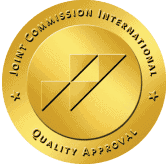You’d never suspect your successful colleague who lands every presentation, your reliable friend who always shows up, or even yourself might be struggling with alcohol dependence. High-functioning alcoholics master the art of appearing completely in control while battling a serious addiction behind closed doors. They excel in careers, maintain relationships, and handle daily responsibilities with seeming ease—all while drinking in ways that would debilitate most people.
The reality is startling: these individuals often use well-developed coping mechanisms to hide their problematic drinking, rationalizing heavy alcohol use as a reward system or normal behavior. They’ll tell you they “deserve” that drink after a productive day, deflecting concerns by pointing to their continued success.
What makes this particularly dangerous is how the façade of normalcy masks serious physical and mental health risks. From liver disease to compromised immune function, the consequences remain hidden until they become impossible to ignore.
A high-functioning alcoholic is someone who maintains degrees of professional and personal success while exhibiting an unhealthy relationship with alcohol that qualifies as an alcohol use disorder. You might recognize these individuals as colleagues who excel in their careers, friends who handle responsibilities effectively, or family members who appear to have their lives together, even though secretly struggling with alcohol dependence.
The National Institute on Alcohol Abuse and Alcoholism reports that nearly 15 million Americans age 12 and older have alcohol use disorder, with many falling into the high-functioning category. These individuals defy typical stereotypes associated with alcoholism because they successfully mask their addiction behind a façade of stability and achievement.
High-functioning alcoholics demonstrate several key characteristics that distinguish them from those whose alcohol dependency manifests more visibly:
- Professional competence: They maintain steady employment and often excel in their careers
- Social functionality: They preserve relationships and fulfill family obligations
- Concealment abilities: They use sophisticated methods to hide their drinking patterns
- Rationalization skills: They justify their alcohol consumption as earned rewards for their achievements
The term “functioning alcoholic” describes the same phenomenon but emphasizes their current ability to manage daily tasks and responsibilities. You might encounter this person at work meetings, social gatherings, or family functions without recognizing their internal struggle with alcohol dependency.
Unlike non-high-functioning alcoholics who may exhibit obvious signs like missing work, financial troubles, or visible intoxication, high-functioning alcoholics operate under the radar. They drink alone, use breath mints to mask alcohol odors, and attend social events after consuming alcohol at home. This sophisticated concealment makes their condition particularly dangerous because intervention often comes too late.
The distinction between high-functioning and non-high-functioning alcoholism centers on outward appearances rather than the severity of addiction. Both groups experience identical alcohol dependence and addiction-related hardships, but high-functioning alcoholics excel at hiding their symptoms while maintaining their responsibilities and relationships.
Warning Signs and Symptoms

Recognizing high-functioning alcoholic signs requires careful observation since these individuals excel at concealing their alcohol dependency behind a successful facade. The signs of a functioning alcoholic often manifest subtly across drinking behaviors, physical health, and daily life patterns.
Drinking Patterns and Behaviors
High-functioning alcoholics exhibit distinct drinking patterns that distinguish them from casual drinkers. You’ll notice they consume more than two alcoholic drinks per day consistently, often developing a high tolerance that allows them to drink large amounts without appearing intoxicated.
These individuals frequently drink alone or in secret, maintaining constant alcohol levels in their system by sneaking drinks throughout the day. They rationalize their consumption as rewards for achievements, saying they “deserve a drink” after successful meetings or long workdays.
Secret drinking behaviors include consuming alcohol before social events, finishing others’ unfinished drinks, and drinking during inappropriate times like lunch breaks or early mornings. Weekend binge drinking patterns combined with weekday abstinence create cycles that mask the severity of their dependency.
You might observe them making jokes about their drinking habits as a deflection mechanism, normalizing heavy consumption while avoiding serious conversations about their alcohol use. They often choose expensive wines or craft beers to justify their drinking as sophisticated rather than problematic.
Physical and Emotional Indicators
Physical symptoms of functioning alcoholics develop gradually and often remain hidden from colleagues and family members. Common withdrawal symptoms appear when they haven’t consumed alcohol for short periods, including shakiness, sweating, anxiety, and irritability.
Emotional indicators manifest as mood swings, particularly when alcohol isn’t available. These individuals use alcohol as their primary coping mechanism for stress, anxiety, and emotional pain, creating dependency cycles that worsen over time.
You’ll notice signs of emotional distress even though their outward success, including increased anxiety levels, depression symptoms, and feelings of isolation. They experience guilt and shame about their drinking while simultaneously defending their consumption patterns.
Sleep disruption patterns emerge as alcohol affects their natural sleep cycles, leading to fatigue that they mask with caffeine or more alcohol. Physical health issues like digestive problems, frequent headaches, and weakened immune function develop but are often attributed to work stress rather than alcohol consumption.
Impact on Daily Life
Even though maintaining professional competence, functioning alcoholics experience hidden struggles that affect their overall well-being. They might miss important deadlines, forget commitments, or perform poorly in areas where their drinking is less concealed.
Relationship erosion occurs gradually as family members and friends notice inconsistencies in behavior, even when the individual appears successful professionally. They neglect hobbies and activities they once enjoyed, replacing them with alcohol-centered social situations.
Financial consequences develop as they spend increasing amounts on alcohol while maintaining their lifestyle expenses. Legal risks increase due to potential drinking and driving incidents or other alcohol-related legal issues.
Academic and professional performance begins declining even though initial appearances of success. Increased absenteeism, workplace accidents, and decreased motivation affect long-term career progression, though these changes often occur slowly enough to avoid immediate detection.
The facade of control requires enormous energy to maintain, leading to chronic stress and exhaustion that compounds their reliance on alcohol as a coping mechanism. This creates a dangerous cycle where their success becomes both their shield and their prison.
High-Functioning vs. Traditional Alcoholism

The distinction between high-functioning alcoholic behavior and traditional alcoholism centers on outward appearances rather than the severity of addiction itself. Both groups experience identical alcohol dependence and face similar health risks, but their visible symptoms and daily management strategies differ significantly.
Outward Behavior Patterns
High-functioning alcoholics maintain sophisticated concealment methods that mask their drinking habits. You’ll find them drinking alone before social events, using breath mints consistently, and attending work functions after consuming alcohol at home. Their overall impression suggests complete life control and professional competence.
Traditional alcoholics exhibit more obvious behavioral signs that others readily notice. They arrive late to work regularly, struggle with financial management, and appear visibly hungover during daily activities. Legal troubles like DUIs and public intoxication incidents occur more frequently in this group.
Professional and Social Stability
| Aspect | High-Functioning Alcoholic | Traditional Alcoholic |
|---|---|---|
| Work Performance | Maintains steady employment and career advancement | May face job instability or termination |
| Social Relationships | Preserves surface-level relationships and social standing | Experiences visible relationship deterioration |
| Daily Responsibilities | Manages household tasks and personal obligations | Struggles with basic daily management |
| Financial Status | Maintains financial stability and obligations | Often faces financial difficulties |
Recognition and Intervention Challenges
High-functioning alcoholics present unique identification challenges because their success contradicts common alcoholism stereotypes. You might excel in high-pressure environments while using social drinking norms to camouflage alcohol misuse. This sophisticated masking makes it difficult for family members, colleagues, and even healthcare providers to recognize the problem.
Traditional alcoholics typically receive intervention sooner because their symptoms become apparent to others. Visible consequences like missed work, relationship conflicts, or legal issues prompt earlier recognition and treatment opportunities.
Health Consequences Remain Identical
Even though functional differences, both groups face identical physical and mental health risks. Liver disease, cardiovascular problems, and neurological damage occur at similar rates regardless of functional capacity. The 15 million Americans with alcohol use disorder experience these health consequences, whether they maintain professional success or not.
The Illusion of Control
High-functioning alcoholics develop elaborate rationalization systems that justify their drinking patterns. You might view alcohol consumption as a reward for achievements or a necessary tool for managing stress. This perceived control creates a dangerous feedback loop where success becomes both protection and prison, delaying necessary treatment intervention.
Traditional alcoholics often lose this illusion of control earlier, which paradoxically can lead to faster recovery initiation once they acknowledge the problem’s severity.
Risk Factors and Causes

Understanding the risk factors and causes behind high-functioning alcoholism helps you recognize patterns that might develop into alcohol dependency. The National Institutes of Health estimates that 20% of people with alcohol addiction are high functioning, with most being well-educated individuals with good incomes.
Genetic and Environmental Risk Factors
Family History creates the strongest risk factor for developing a functioning alcoholic pattern. Genetics plays a significant role in alcohol dependence, with individuals having close family members with alcoholism facing a higher personal risk. You might witness learned behaviors where parents cope with stress through alcohol, normalizing drinking as a primary solution to life’s challenges.
High-Stress Professions contribute significantly to functional alcoholism development. People working in demanding fields like law, finance, healthcare, or high-level corporate positions show greater vulnerability. Long hours, performance pressures, and social culture around corporate events or business dinners lead to regular and sometimes heavy drinking patterns.
Cultural and Social Norms influence drinking behaviors in specific environments. In cultures or social circles where alcohol consumption is common and encouraged, you might slip into problem drinking without immediate recognition. Heavy drinking becomes normalized among peers, allowing high-functioning alcoholics to rationalize their behavior as typical.
Psychological and Behavioral Causes
Stress Management drives many people toward alcohol as a coping mechanism. You might use alcohol to manage workplace stress, personal issues, or emotional burdens. The initial relief and relaxation alcohol provides quickly leads to dependence, especially with underlying mental health issues like depression or anxiety.
Personality Traits create specific vulnerabilities in certain individuals. Perfectionists, overachievers, and those with high self-expectations often turn to alcohol to cope with underlying anxieties or emotional burdens. You might excel at controlling your external environment while struggling with internal emotional regulation.
Mental Health Conditions increase vulnerability to alcohol misuse significantly. Co-occurring disorders such as depression, anxiety, or bipolar disorder create situations where you might self-medicate with alcohol to alleviate symptoms, further fueling addiction development.
Physical and Tolerance Factors
Tolerance Development occurs gradually over time with regular alcohol consumption. Your body requires increasing amounts of alcohol to achieve the same effects, creating a dangerous cycle of escalating consumption while maintaining outward functionality.
Withdrawal Symptoms develop when you reduce alcohol intake, including anxiety, shakiness, and irritability. These physical symptoms solidify addiction patterns as you continue drinking to avoid uncomfortable withdrawal experiences.
Concealment Behaviors emerge as primary addiction maintenance strategies. You might drink alone or in secret, hide alcohol supplies, and rationalize drinking patterns to mask dependency from family, friends, and colleagues.
| Risk Factor Category | Specific Examples | Impact Level |
|---|---|---|
| Genetic | Family history of alcoholism | High |
| Professional | High-stress careers (law, finance, healthcare) | High |
| Psychological | Depression, anxiety, perfectionism | High |
| Social | Normalized drinking culture | Medium |
| Physical | High alcohol tolerance | Medium |
Lack of Awareness prevents many high-functioning alcoholics from recognizing harmful drinking levels. You might not fit typical alcoholic stereotypes, making it difficult to believe someone can be both successful and addicted to alcohol simultaneously. This denial prolongs the addiction cycle and delays necessary intervention.
Hidden Consequences and Long-Term Risks
While high-functioning alcoholics maintain their professional and personal responsibilities, they face serious hidden dangers that progressively worsen over time. The outward appearance of control masks severe internal consequences that can become life-threatening without intervention.
Health Complications
Chronic alcohol consumption creates devastating physical health consequences that develop gradually in high-functioning alcoholics. Liver damage occurs in 90% of heavy drinkers, progressing from fatty liver disease to cirrhosis without visible symptoms in early stages. Cardiovascular problems develop as alcohol increases blood pressure and damages heart muscle, leading to heart disease that affects 2-3 times more heavy drinkers than non-drinkers.
Cancer risks increase significantly with chronic alcohol use, particularly liver cancer, breast cancer, and gastrointestinal cancers. The body’s immune system weakens with consistent alcohol consumption, making you more susceptible to infections and slowing recovery times. Neurological damage occurs as alcohol affects brain chemistry, leading to memory problems, concentration difficulties, and potential permanent cognitive impairment.
Sleep patterns become disrupted, even though alcohol’s initial sedative effects create chronic fatigue and affecting your body’s ability to repair itself. Gastrointestinal problems, including ulcers, acid reflux, and digestive issues, develop as alcohol irritates the stomach lining and interferes with nutrient absorption. Many high-functioning alcoholics delay medical treatment or downplay their alcohol consumption during medical evaluations, preventing early detection and treatment of these serious conditions.
Relationship and Social Impact
Living with a functional alcoholic creates significant strain on family relationships and social connections. Trust erodes as family members discover secretive drinking behaviors, mood swings, and unpredictable emotional responses. Spouses and children experience anxiety and stress from walking on eggshells around unpredictable behavior patterns, even when the alcoholic appears successful externally.
Emotional distance develops as the high-functioning alcoholic prioritizes alcohol over meaningful connections with loved ones. Children in these households show higher rates of behavioral problems and anxiety disorders, as they adapt to inconsistent parenting and emotional availability. The facade of normalcy becomes exhausting for family members who must maintain appearances while dealing with internal chaos.
Social relationships suffer as friends notice subtle changes in personality, reliability, and emotional availability. You may find yourself declining social activities that don’t involve alcohol or feeling uncomfortable in situations where drinking isn’t possible. Professional relationships can deteriorate as colleagues observe decreased concentration, missed deadlines, or erratic decision-making, even though you are making efforts to maintain performance standards.
The energy required to maintain your high-functioning alcoholic lifestyle creates chronic stress that affects every relationship. Partners often develop codependent behaviors, enabling the drinking while trying to protect the family’s reputation. Friends may gradually distance themselves as they sense something is wrong but can’t identify the specific problem, leading to increased isolation and loneliness that fuels continued drinking.
Why High-Functioning Alcoholics Stay in Denial
Denial acts as the primary barrier preventing high-functioning alcoholics from recognizing their addiction and seeking treatment. This psychological defense mechanism becomes particularly entrenched because these individuals maintain their professional success and personal relationships even though their alcohol dependency.
The Success-Denial Connection
Your ability to excel at work and maintain relationships creates a powerful rationalization system that reinforces denial. High-functioning alcoholics convince themselves they don’t have a problem since they can hold down jobs, pay bills, and fulfill family obligations. This self-denial strengthens when you compare yourself to stereotypical images of alcoholism—people who’ve lost everything due to drinking.
The absence of severe consequences like job loss, arrests, or financial ruin makes it easier to dismiss concerns about your drinking patterns. You tell yourself, “I’m still in control” or “Everyone else drinks too” because your outward success appears to validate these beliefs.
Rationalization Mechanisms
High-functioning alcoholics develop sophisticated justification systems for their drinking behavior. Common rationalizations include:
- Work stress: “My job is so stressful I need it”
- Achievement rewards: “I work so hard I am entitled to have fun”
- Social normalization: “Everyone after work is drinking so it’s social”
- Frequency denial: “I don’t drink every day so I’m not an alcoholic”
- Functional capacity: “I can hold my drink” or “I don’t get hangovers so it’s okay”
These mental gymnastics serve as psychological shields that protect you from confronting the reality of your alcohol dependency.
Social and Environmental Reinforcement
Your social and professional circles often inadvertently support your denial. When heavy drinking gets normalized among peers, you can rationalize your behavior as typical rather than problematic. Family members and friends sometimes enable this denial by making excuses for your behavior or avoiding difficult conversations about your drinking habits.
The polished exterior you maintain—arriving on time, meeting deadlines, appearing put-together—creates a protective facade that prevents others from questioning your alcohol use. This social reinforcement strengthens your belief that your drinking isn’t problematic.
Fear-Based Resistance
Fear of stigma creates another powerful barrier to acknowledging alcohol addiction. You might worry that admitting your problem will damage your reputation, career prospects, or relationships. This fear becomes particularly acute for high-functioning alcoholics who’ve built their identity around success and competence.
The thought of disrupting your routine or exposing your vulnerability through treatment feels threatening to the carefully constructed image you’ve maintained. This resistance to change grows stronger when you believe you’re managing your drinking effectively compared to others who’ve experienced more visible consequences.
Lack of Rock Bottom Experience
Unlike traditional alcoholics who often hit a clear “rock bottom” that forces recognition of their problem, high-functioning alcoholics rarely experience such dramatic wake-up calls. The gradual nature of consequences—declining health, relationship strain, or work performance issues—makes it easier to ignore or reduce these warning signs.
Without obvious crisis moments, you postpone seeking treatment indefinitely. The ability to maintain normal life appearances masks the severity of your addiction and impedes the path to recovery, creating a dangerous cycle where your success becomes both protection and prison.
How to Help Someone Who Is a High-Functioning Alcoholic
Supporting someone who is a high-functioning alcoholic requires patience and understanding, as they often resist help due to their apparent success and control. The key lies in recognizing enabling behaviors while implementing strategic intervention approaches.
Recognizing Codependency
Codependency develops when you inadvertently enable the functioning alcoholic’s behavior while compromising your own well-being. You might find yourself making excuses for their drinking, covering up their mistakes, or taking on responsibilities they’ve neglected due to alcohol use.
Common codependent behaviors include:
- Covering up consequences – Making excuses to employers, friends, or family members about their behavior
- Financial enabling – Paying bills they’ve neglected or providing money they’ve spent on alcohol
- Emotional caretaking – Constantly managing their moods or walking on eggshells around their drinking
- Denial participation – Agreeing with their rationalizations or minimizing the severity of their alcohol use
- Isolation acceptance – Withdrawing from social activities to accommodate their drinking patterns
Studies show that approximately 90% of family members of individuals with alcohol use disorders exhibit codependent behaviors. Recognizing these patterns helps you understand how your actions may unintentionally perpetuate their addiction while damaging your own mental health.
Setting boundaries becomes essential when living with a functional alcoholic. You must protect your emotional and physical well-being by refusing to participate in behaviors that enable their drinking. This includes not providing alibis for their actions, avoiding financial bailouts, and maintaining your own social connections even though their alcohol-related limitations.
Intervention Strategies
Effective intervention with high-functioning alcoholics requires specific approaches that address their unique resistance patterns. Research indicates that structured interventions increase treatment engagement by 85% compared to informal confrontations.
Evidence-based confrontation forms the foundation of successful intervention. Present specific instances of their problematic drinking rather than general accusations. Document times they’ve missed commitments, exhibited mood changes after drinking, or engaged in risky behaviors while intoxicated. Concrete examples help dismantle their denial mechanisms more effectively than emotional appeals.
Group intervention coordination involves organizing concerned family members and friends to express their observations collectively. This approach prevents the high-functioning alcoholic from dismissing concerns as isolated opinions. Each participant shares specific examples of how the person’s drinking has affected them, creating a comprehensive picture of the addiction’s impact.
Resource presentation replaces ultimatums with options, allowing the individual to maintain a sense of control over their recovery process. Research local treatment centers, outpatient programs, and support groups before the intervention. High-functioning alcoholics often prefer less disruptive treatment options initially, such as evening therapy sessions or weekend programs that don’t interfere with their professional responsibilities.
Professional facilitation increases intervention success rates significantly. Licensed intervention specialists understand how to navigate the unique challenges presented by high-functioning alcoholics, including their sophisticated defense mechanisms and rationalization abilities. They can guide the conversation toward treatment options while preventing the session from becoming confrontational.
Follow-through planning ensures immediate action after the intervention. Have treatment options researched, insurance verified, and appointments scheduled. High-functioning alcoholics may agree to seek help in the moment but postpone action indefinitely without concrete next steps. Immediate enrollment in treatment or support groups capitalizes on their momentary willingness to acknowledge the problem.
The timing of intervention matters critically. Choose moments when they’re sober and not dealing with work stress or major life events. Avoid intervening during their peak professional periods or immediately after they’ve experienced alcohol-related consequences, as they may be particularly defensive during these times.
Treatment Options and Recovery
Recovery from high-functioning alcoholism requires a comprehensive approach that addresses both the addiction and the unique challenges you face as someone who maintains outward success. Unlike traditional alcoholics who may hit rock bottom, you might continue functioning while your health deteriorates, making treatment selection crucial for your specific circumstances.
Detoxification Programs
Medically supervised detoxification represents the first step in your recovery journey. This process safely clears alcohol from your body while managing withdrawal symptoms under professional supervision. You can choose between inpatient detox facilities that provide 24/7 monitoring or outpatient programs that allow you to maintain work responsibilities. Your choice depends on your drinking patterns, withdrawal severity, and personal commitments.
| Detox Option | Duration | Monitoring Level | Best For |
|---|---|---|---|
| Inpatient | 3-7 days | 24/7 medical supervision | Severe withdrawal symptoms |
| Outpatient | 7-14 days | Daily check-ins | Mild to moderate symptoms |
| Medically-assisted | Varies | Regular physician visits | Co-occurring health conditions |
Therapeutic Interventions
Cognitive-behavioral therapy (CBT) helps you identify and change harmful drinking patterns while addressing underlying mental health issues like depression or anxiety. This evidence-based approach teaches you to recognize triggers and develop healthy coping mechanisms. Motivational interviewing techniques enhance your readiness to change by exploring your ambivalence about drinking and strengthening your motivation for recovery.
Individual counseling sessions uncover the root causes of your alcoholism and help rebuild damaged relationships. These one-on-one sessions provide a safe space to explore personal issues without judgment. Group therapy offers peer support and accountability from others who understand your struggles, creating connections that sustain long-term recovery.
Program Structure Options
Inpatient Programs
- Provide intensive care with 24/7 monitoring
- Ideal for severe cases or co-occurring mental health disorders
- Offer structured environments free from external triggers
- Include comprehensive medical and psychological support
Outpatient Programs
- Allow you to maintain work and family commitments
- Provide flexibility for high-functioning individuals
- Include evening and weekend session options
- Offer graduated levels of care as you progress
Your lifestyle factors influence program selection significantly. Outpatient programs work well if you balance work or family responsibilities, while residential programs offer stability if your home environment lacks support or contains triggers.
Support System Development
Alcoholics Anonymous (AA) and SMART Recovery provide ongoing community support that reduces isolation and enhances your motivation to stay sober. These programs offer structured approaches to recovery with regular meetings and peer accountability. You might initially resist these groups due to pride or believing your problem isn’t severe, but they serve anyone struggling with alcohol use, regardless of outward success.
Support groups specifically address the unique challenges you face as a high-functioning alcoholic. Members understand the pressure to maintain appearances while battling addiction internally. These connections often prove crucial for sustained recovery.
Lifestyle Integration Strategies
Recovery involves comprehensive lifestyle changes that extend beyond stopping drinking. Stress management techniques help you handle work pressures without alcohol. Mindfulness practices develop awareness of triggers and emotional states. Regular exercise and proper nutrition support your physical recovery while improving mental health.
Learning to manage triggers requires identifying situations, emotions, or environments that prompt drinking urges. You develop alternative responses to these triggers through practice and professional guidance. Building healthy routines replaces drinking habits with productive activities.
Personalized Treatment Planning
Your treatment plan must consider individual needs and any co-occurring mental health conditions. Approximately 15 million Americans aged 12 and older have alcohol use disorder, with many functioning at high levels professionally. Tailored approaches combining therapy, support groups, and, when necessary, medication provide the best chance for lasting recovery.
Treatment selection depends on your specific circumstances, drinking severity, and personal preferences. Some individuals benefit from medication-assisted treatment that reduces cravings or blocks alcohol’s effects. Others respond better to intensive therapy combined with peer support.
Recovery Maintenance
Recovery represents a lifelong process requiring ongoing effort and support. Regular therapy sessions, support group participation, and lifestyle modifications maintain your sobriety over time. Relapse prevention strategies help you navigate challenging situations without returning to drinking.
Your success in recovery often correlates with treatment engagement and support system strength. Regular check-ins with healthcare providers monitor your progress and adjust treatment approaches as needed. Building a network of sober relationships provides ongoing encouragement and accountability.
The combination of professional treatment, peer support, and personal commitment creates the foundation for successful recovery. Your journey requires patience and persistence, but recovery from high-functioning alcoholism is achievable with appropriate treatment and support.
Common Questions
Understanding high-functioning alcoholism raises many questions for those trying to identify the condition in themselves or others. These frequently asked questions address the most common concerns about functional alcoholism and its characteristics.
A high-functioning alcoholic maintains professional success and personal relationships while struggling with alcohol dependence that meets alcohol use disorder criteria. You’re considered a high-functioning alcoholic if you drink more than recommended limits – exceeding 4 drinks per day or 14 per week for men, or 3 drinks per day or 7 per week for women – while continuing to excel at work and maintain social obligations.
Key indicators include:
- Consuming alcohol to cope with stress or emotional difficulties
- Hiding drinking habits from family members and colleagues
- Making unsuccessful attempts to reduce alcohol consumption
- Experiencing withdrawal symptoms like anxiety or shakiness without alcohol
- Drinking excessively without appearing intoxicated due to high tolerance levels
Recognizing signs of a functioning alcoholic becomes challenging because you maintain outward appearances of control and success. Unlike traditional stereotypes of alcoholism, you continue performing daily responsibilities effectively while privately battling alcohol dependence. This functional capacity masks the severity of your condition, often delaying recognition and treatment until significant health consequences develop.
What are the three types of alcoholism?
Medical professionals categorize alcoholism into three distinct types based on onset patterns and underlying factors. Understanding these classifications helps identify different manifestations of alcohol use disorder and appropriate treatment approaches.
| Type | Age of Onset | Primary Characteristics | Contributing Factors |
|---|---|---|---|
| Type 1 (Late Onset) | After age 25 | Environmental triggers, anxiety-driven | Stress, life circumstances, learned behaviors |
| Type 2 (Early Onset) | Before age 25 | Hereditary influences, more severe symptoms | Genetic predisposition, family history |
| Functional Alcoholism | Any age | Maintained responsibilities even though addiction | High-functioning lifestyle, professional success |
Type 1 alcoholism develops later in life and connects strongly to environmental stressors and coping mechanisms. You might develop this type after experiencing significant life changes, workplace pressures, or emotional trauma that leads to alcohol as a primary stress management tool.
Type 2 alcoholism appears earlier and carries stronger genetic components. If you have family members with alcohol addiction, you face higher risks of developing this form, which typically presents more severe symptoms and requires intensive treatment approaches.
Functional alcoholism, closely related to high-functioning alcoholic behavior, occurs when you maintain daily responsibilities while battling alcohol dependence. This type crosses age boundaries and often affects successful professionals who use alcohol to manage stress while preserving their career achievements.
What are the 7 personality traits of an alcoholic?
While specific research doesn’t definitively establish seven universal personality traits for alcoholics, clinical observations identify common characteristics that frequently appear in individuals with alcohol use disorders. These traits reflect vulnerability patterns rather than definitive predictors of alcoholism.
Common personality traits associated with alcoholism:
- Impulsivity – Making decisions without considering consequences, particularly about alcohol consumption
- Low self-esteem – Using alcohol to boost confidence and mask feelings of inadequacy
- High stress sensitivity – Experiencing intense reactions to pressure and using alcohol for relief
- Risk-taking behavior – Engaging in dangerous activities while drinking or to obtain alcohol
- Depression or anxiety – Managing mental health symptoms through alcohol consumption
- Denial patterns – Refusing to acknowledge problematic drinking behaviors or their consequences
- Poor coping skills – Lacking healthy stress management techniques beyond alcohol use
Understanding these traits helps you recognize potential warning signs in yourself or others. But, possessing these characteristics doesn’t guarantee alcohol addiction development, as many factors contribute to alcohol use disorders.
High-functioning alcoholics often display perfectionism and achievement-oriented behaviors alongside these traits. You might excel professionally while privately struggling with these personality patterns, using success as a shield to deflect concerns about drinking habits. This combination creates unique challenges in recognizing and addressing alcohol dependence, as your achievements can mask underlying psychological vulnerabilities that contribute to alcohol addiction.


